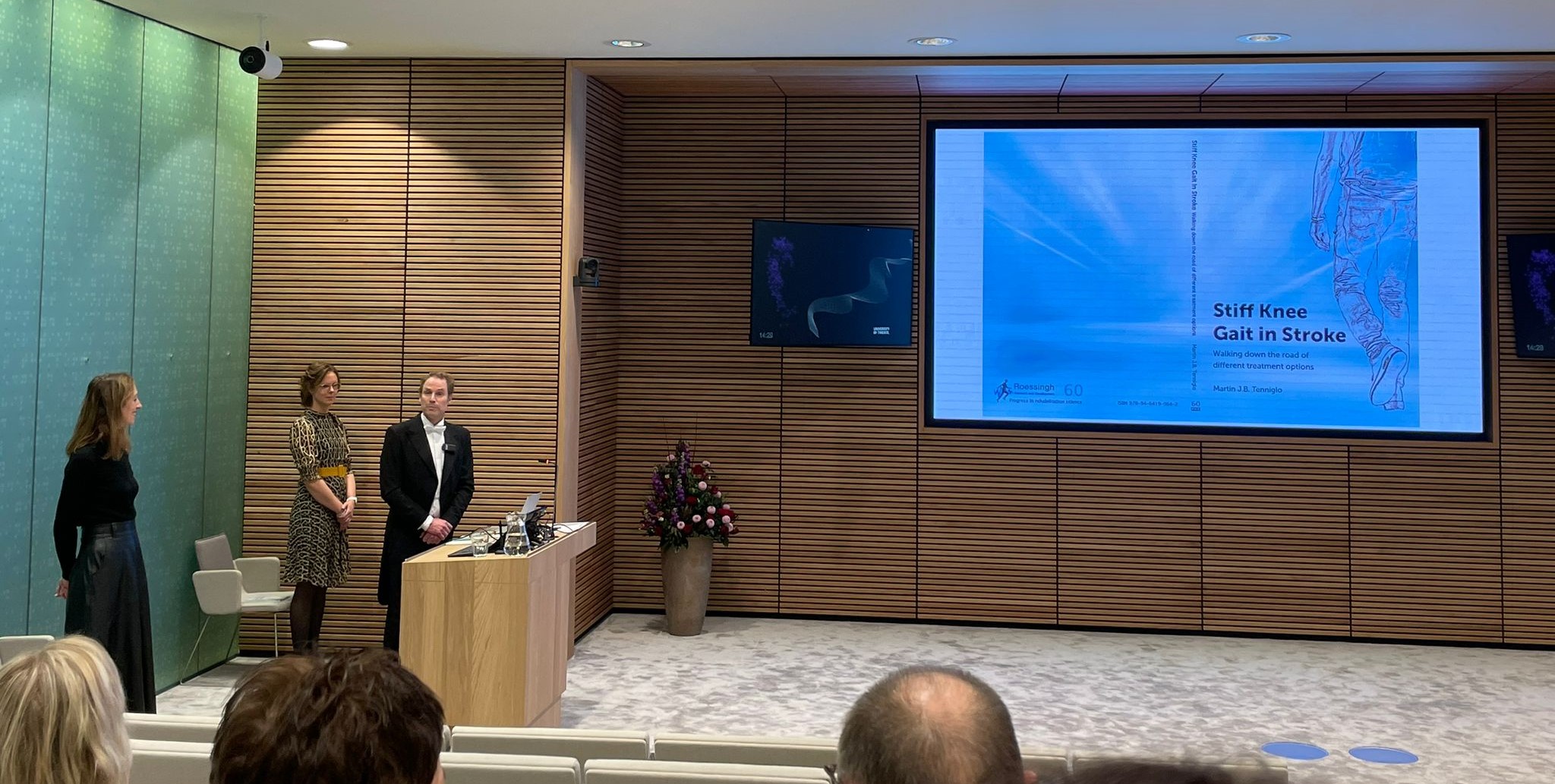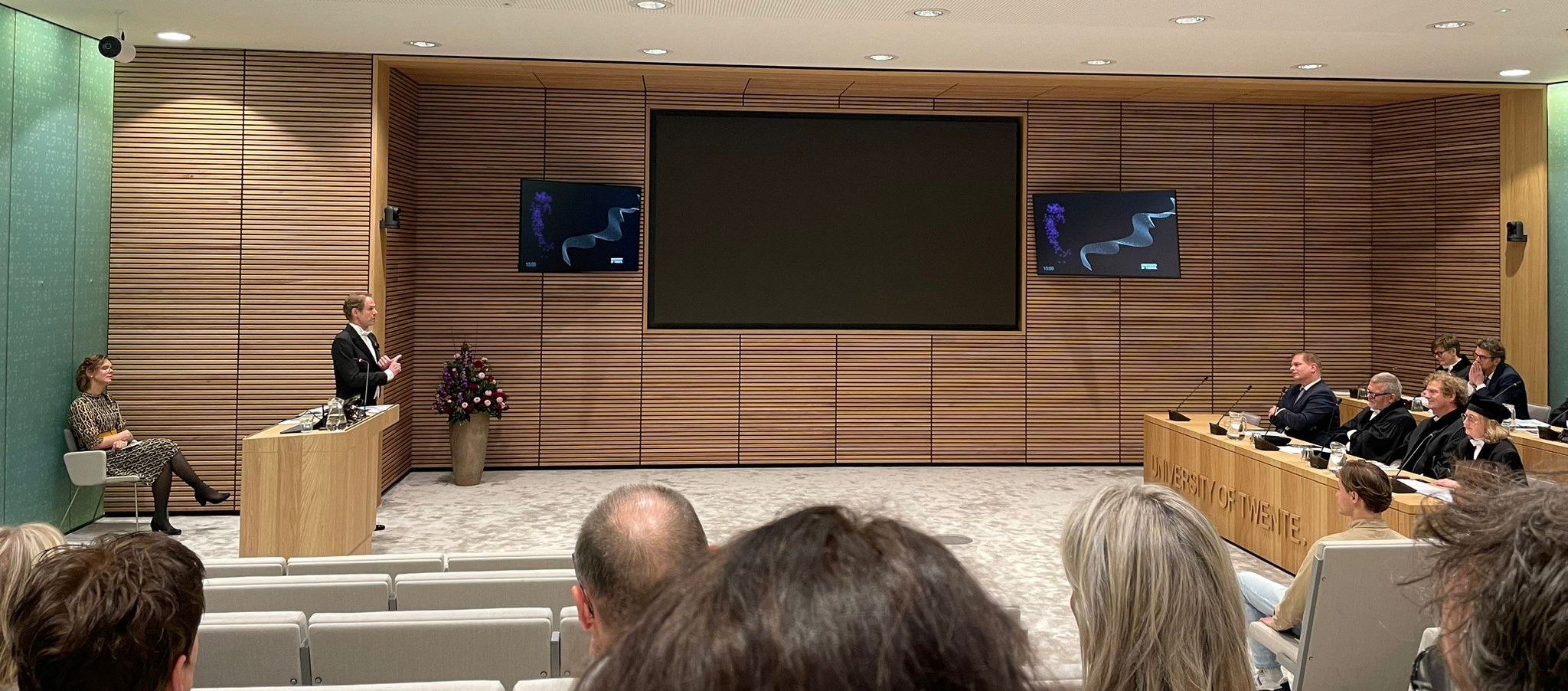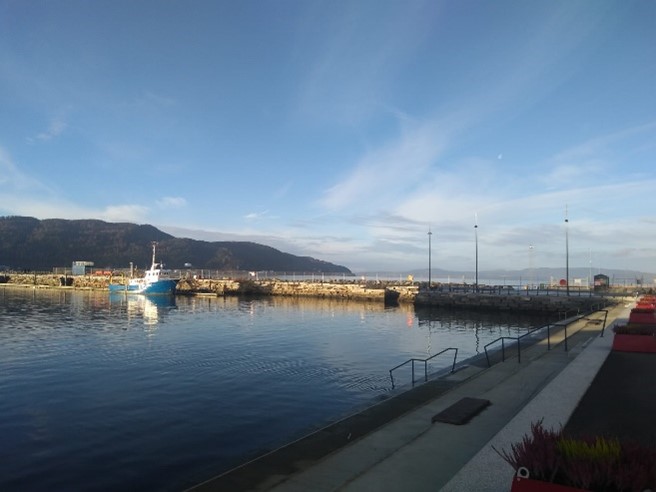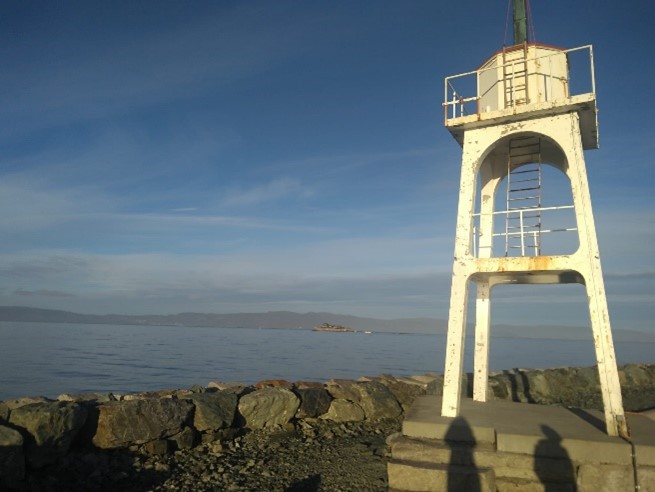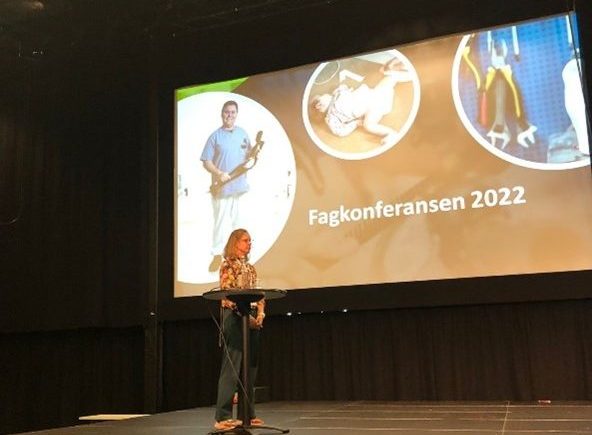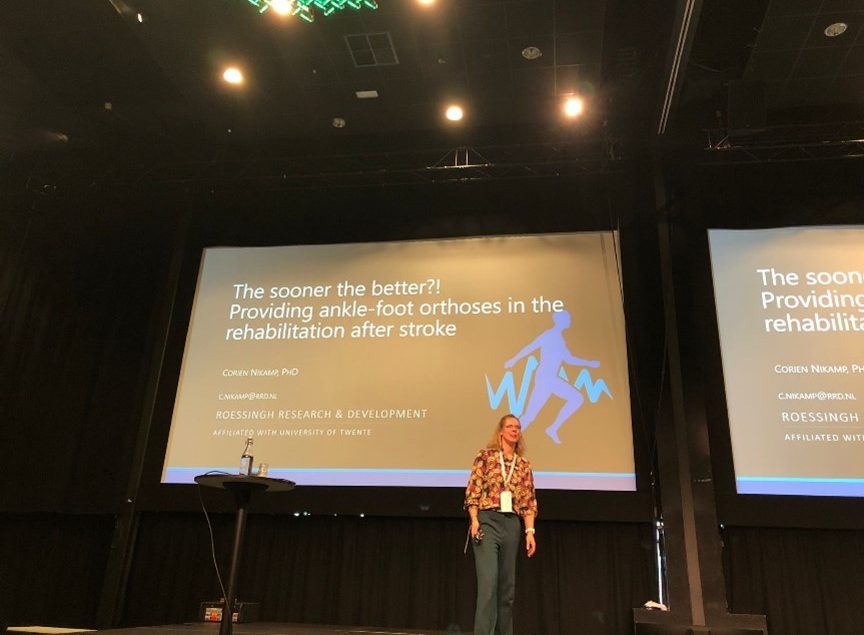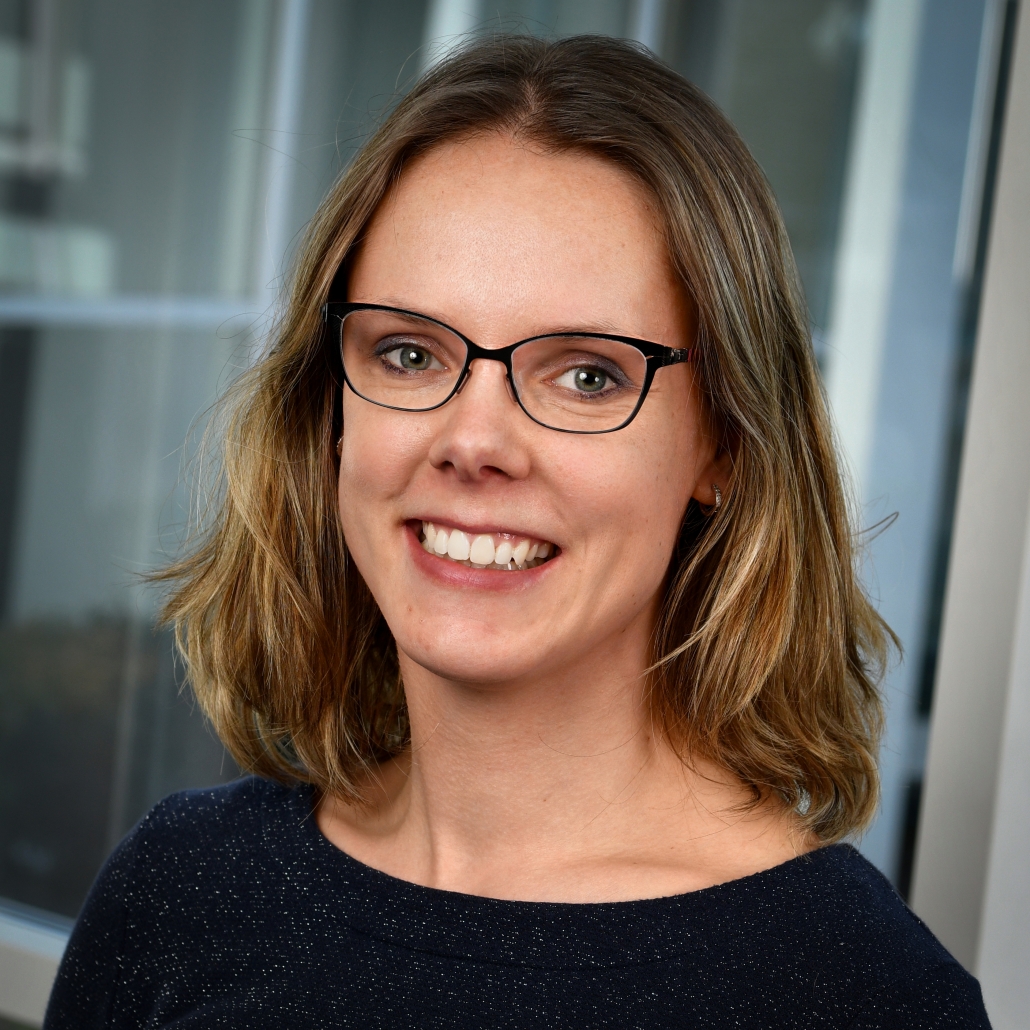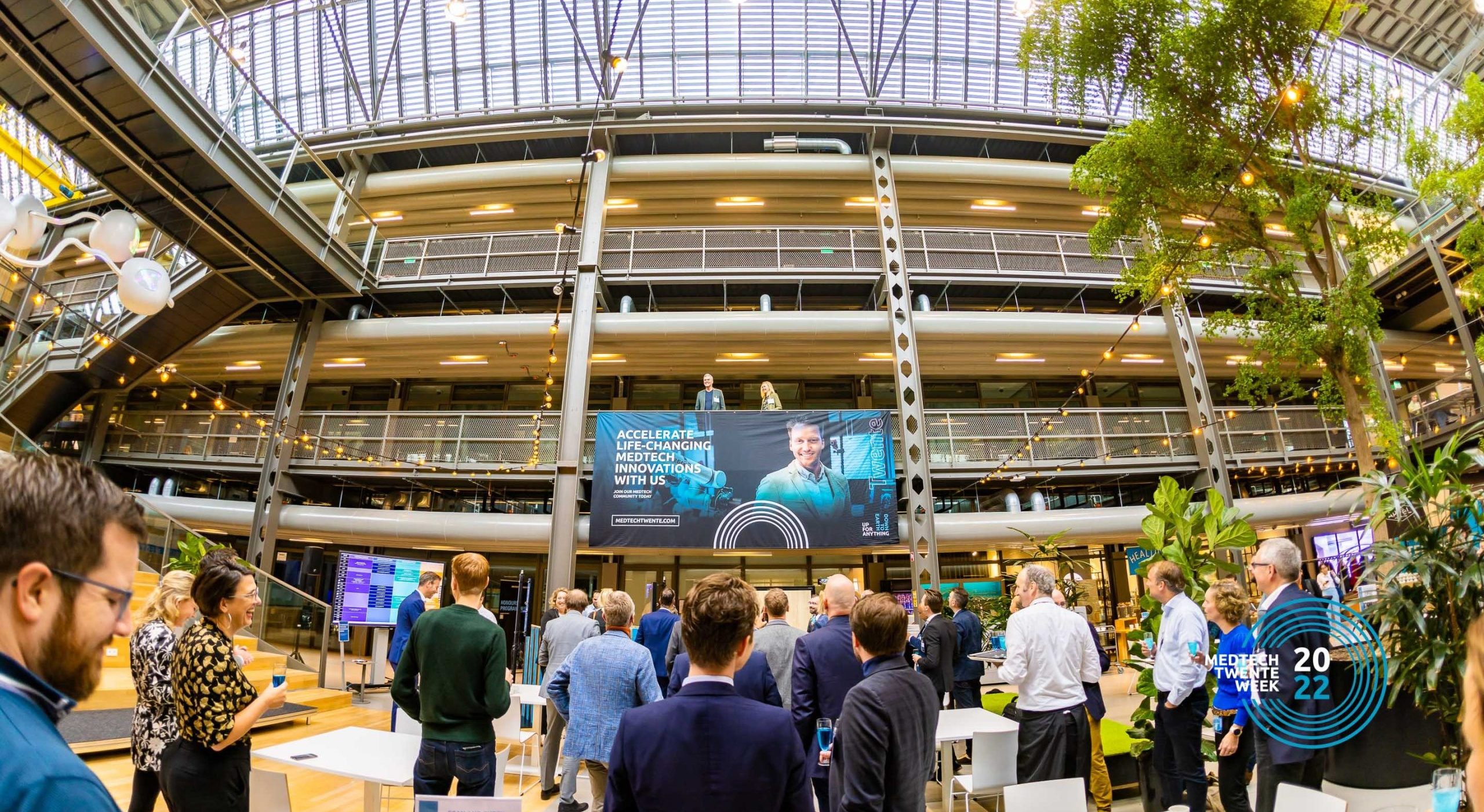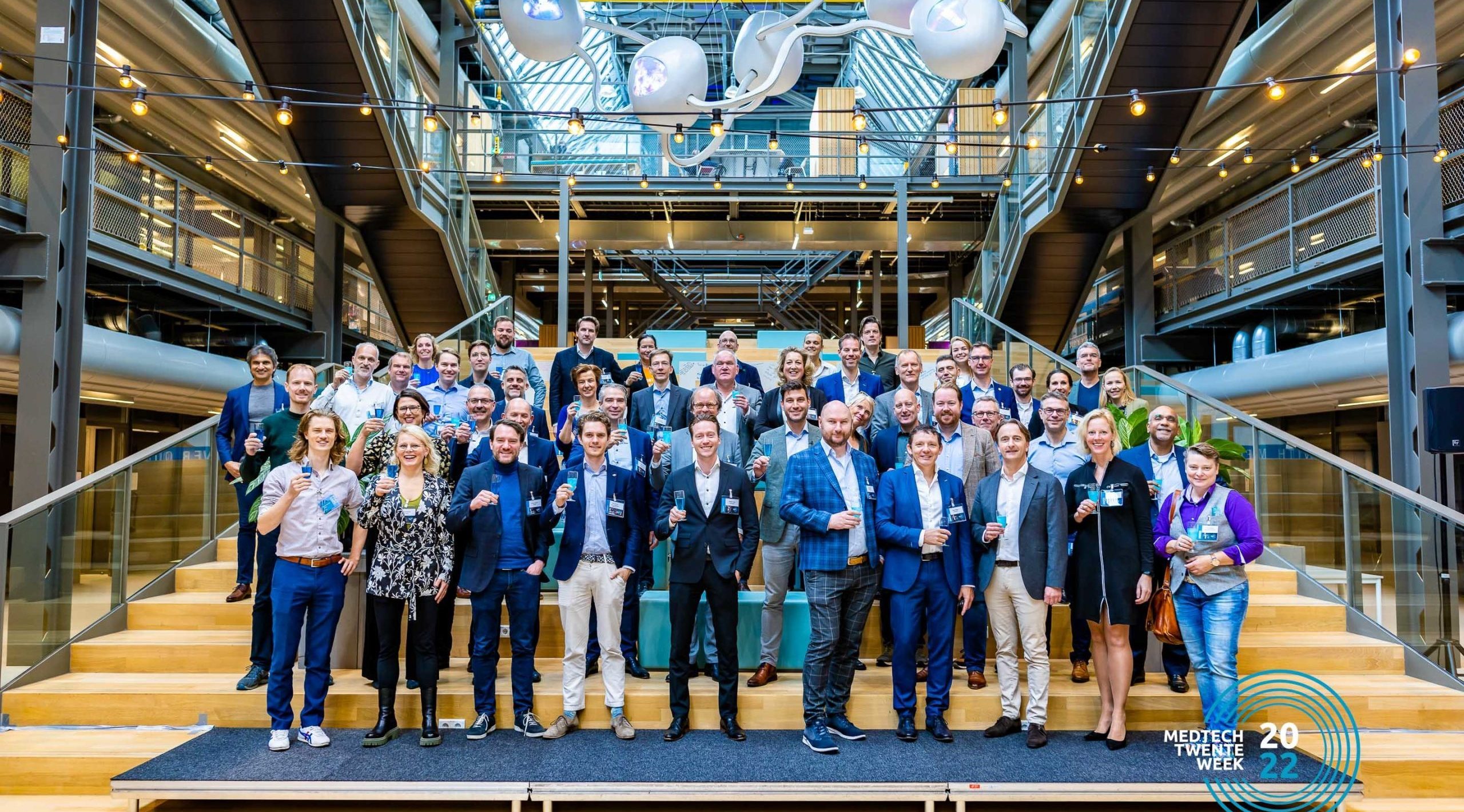Written by: Marian Hurmuz
Last week, the last RRD PhD defence of 2023 took place! Martin Tenniglo defended his PhD thesis, titled: “Stiff knee gait in stroke: Walking down the road of different treatment options”. Stroke survivors often struggle with functional consequences: cognitive, emotional, sensory and motor impairments. These functional consequences lead to limitations in daily life. Of which a common problem is stiff knee gait. Many times, this problem arises due to abnormal activity of the rectus femoris during the swing phase. Two options are available for assessing this abnormal activity. But are these also suitable in this group of people? There are also several treatment options to reduce stiff knee gait. But how effective are these? Martin has dedicated his PhD to this topic. On Thursday the 7th of December (2023), he defended his thesis, which you can find here.
Martin's thesis covers the following topics:
- Identifying the effect of Motor Branch Block (MBB) or NeuroMuscular Block (NMB) of the rectus femoris on knee kinematics and functional outcomes.
- Identifying the diagnostic value of the Duncan Ely test in predicting abnormal rectus femoris activity in people after stroke who walk with a stiff knee.
- Investigating the effect of functional electrical stimulation of the hamstrings in stroke survivors with a stiff knee gait.
- Investigating the effect of Botulinum toxin injection in the rectus femoris in stroke survivors with a stiff knee gait.
- Investigating the effect of rectus femoris transfer in stroke survivors with a stiff knee gait.
Martin ends his thesis with 6 key messages he wants to share with the clinic and that can be applied in the clinical setting. He also indicates where the focus should be on future research related to this topic.
We are very proud of Martin and his hard work! His research has meant a lot to both science and the clinic. The three different treatment options he studies are also applied at Roessingh, Centre for Rehabilitation. Martin continues his work as a physiotherapist, gait specialist and as a specialist in electrical stimulation. Amongst others, he works on the development of a knee flexion device and on the investigation of the effect of a chemodenervation in the vastii and rectus femoris. We wish him the best of luck in his career!
